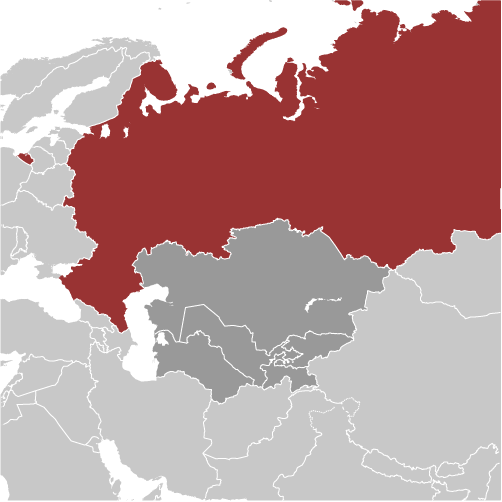Russia
freedom of information: overview
Russia’s Law on Providing Access to Information on the Activities of State Bodies and Bodies of Local Self-Government, passed by the lower house of the legislature (State Duma) on January 21, 2009. It is a significant reversal of long-standing traditions of government secrecy and has the dubious distinction of being the longest-debated bill in the recent history of the Duma. The law was first introduced in January 2007, was signed by President Dimitry Medvedev on February 9, 2009, and comes into effect on January 1, 2010. For the first time in the Russian history, the law positively guarantees the rights of Russian citizens to request and receive information, outlines a procedure for such requests, and determines government responsibility for providing such information.
The passage of the bill was the result of a widespread public campaign by several NGOs championed by the Institute for Information Freedom Development (IIFD) in St. Petersburg. In September 2008, the Institute published a comprehensive 800-page report, Access to Information: State Secrets and Human Rights, on the state of access to information in Russia, featuring a legal analysis of laws and norms regarding use of information. The report also included a sociological survey of both users and providers of information and criticized the inconsistent application of the constitutional right “to freely seek and obtain information about the activities of state organs and organs of local administration,” inscribed in Article 29 of the Russian Constitution. The law breaches the gap between this constitutional guarantee and the administrative practice by providing a detailed mechanism to implement this basic right and includes the legal definition for the term “information about the work of government organs.”
The law stipulates that “Basic principles of realization of the right of citizens and organizations of access to information about the activities of state organs and organs of local administration are the openness and general accessibility of information, fullness and reliability of information, observance of rights and interests of third parties in providing information, and accountability of state organs and organs of local administration for violations of rights of users (customers) of information.” For the first time in Russian history, the law establishes the presumption of openness about the work of state bodies with the exception of information classified as state secrets. Government agencies are obligated to respond to citizen requests for information in 30 days.
While most civil society groups in Russia hailed the new law as a progressive step forward, there have been some troubling developments recently that affect access to information and freedom of speech. In May 2009, commemorating the anniversary of victory in the Great Patriotic War, Russian President Dmitry Medvedev issued a decree creating a Commission to Counteract Attempts of Falsification of History, which will review textbooks, documentaries, and scholarly publications to judge whether authors treat Russia’s recent history, especially the history of World War II, “correctly.” The creation of the commission, as well as the recent publication of a government-approved history textbook for high schools, represent alarming steps backwards from the declared goal of greater openness and transparency.
freedom of information: chronology
December 25, 1993 – The Constitution of the Russian Federation comes into force after adoption by national referendum on December 12. Article 29 guarantees the right “to freely seek and obtain information about the activities of state organs and organs of local administration.”
January 2007 – Law on Providing Access to Information on the Activities of State Bodies and Bodies of Local Self-Government is introduced in the State Duma.
April 18, 2007 – First reading of the draft access to information bill in the State Duma.
December 26, 2008 – Second reading of the draft access to information bill in the State Duma.
January 21, 2009 – Law on Providing Access to Information on the Activities of State Bodies and Bodies of Local Self-Government passes the State Duma, after its third reading.
February 9, 2009 – Russia’s Access to Information Law is signed into force by President Dimitry Medvedev.
May 10, 2009 – President Dimitry Medvedev creates the Commission on the Falsification of History, which publishes a list of authors with “incorrect” views of Russia’s recent history on July 2, 2009.
January 10, 2010 – Law on Providing Access to Information on the Activities of State Bodies and Bodies of Local Self-Government comes into effect.
freedom of information: further reading
Institute for Freedom of Information Development, “National Report on Freedom of Information in Russia,” September 2008. (full report in Russian)
Institute for Freedom of Information Development, “National Report on Freedom of Information in Russia,” September 2008. (English summary)
Institute for Freedom of Information Development, “Access to Information: State Secrets and Human Rights,” December 2006. (in English)
Article 19, “Memorandum on the Russian Federal Law “On Access to Information Concerning Activities of Government Departments and Local Self-Government,” March 2003. (in English)




















